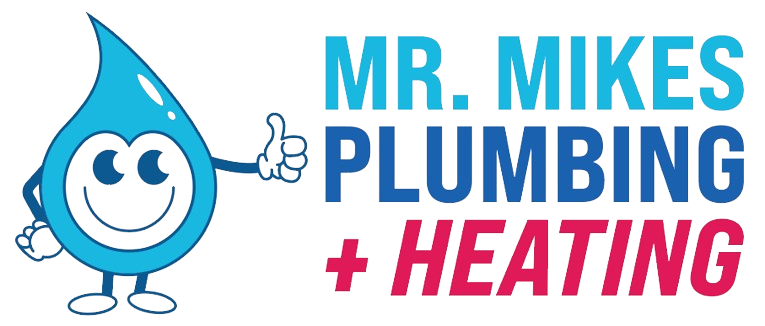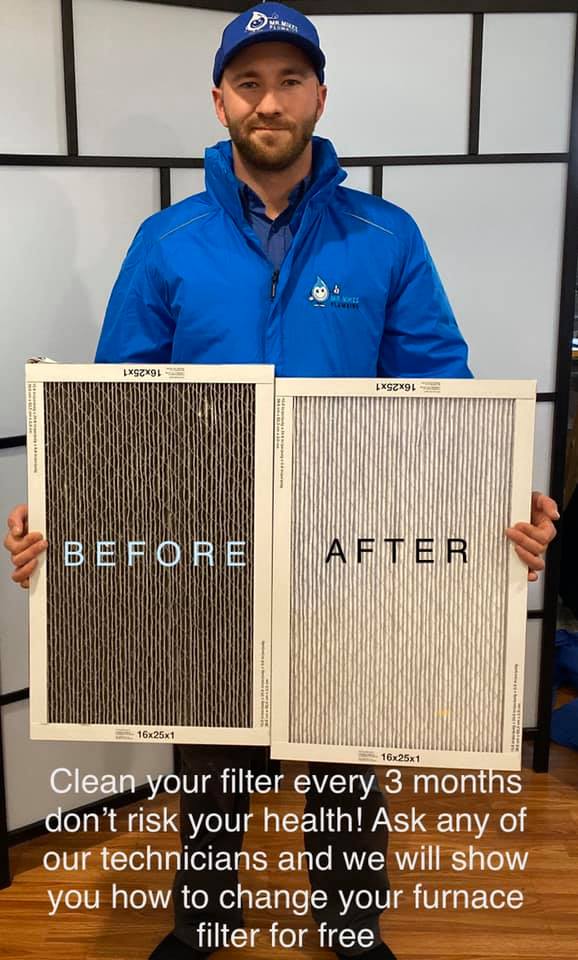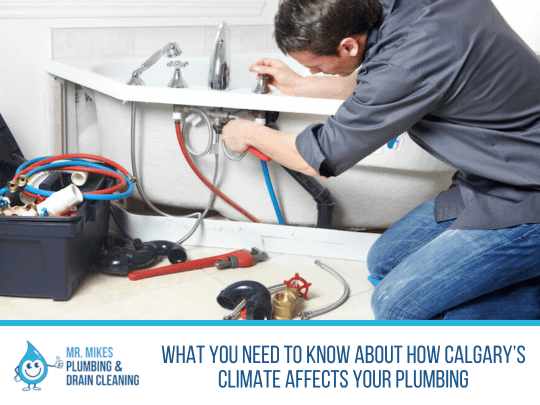
Mr. Mike’s Calgary Plumbing Furnace Filter Cleaning Process
February 29, 2024Water Quality in Calgary and Its Effects on Plumbing Systems
June 26, 2024Plumbing emergencies can happen at any time. The last thing you want to deal with as a homeowner is a sudden plumbing disaster. From burst pipes to overflowing toilets, plumbing emergencies can cause extensive damage to your home and disrupt your daily life. However, you can reduce the risk of experiencing plumbing emergencies.
In this blog, we’ll discuss practical tips and strategies for safeguarding your home against plumbing disasters. From regular maintenance and inspections to proper drain care, we’ll cover everything you need to know to maintain your plumbing system.
Avoid Plumbing Emergencies With Regular Maintenance and Inspections
Regular maintenance and inspections help prevent plumbing emergencies for both residential and commercial plumbing systems. By proactively identifying and addressing potential issues, you can avoid costly repairs and disruptions to your daily life. Here are some tips for maintaining your plumbing system:
DIY Inspections
Inspect your plumbing system to check for signs of leaks, corrosion, or other damage. Look for water stains on walls or ceilings, dampness around fixtures, and unusual odours or sounds. Address any issues promptly to prevent them from escalating into emergencies.
Professional Inspections
Schedule annual or bi-annual inspections with an experienced plumber to assess the condition of your plumbing system. A qualified plumber can identify hidden problems and perform preventative maintenance tasks, such as flushing water heaters and inspecting sewer lines.
Routine Maintenance
Stay on top of routine maintenance tasks for your residential plumbing, such as cleaning faucet aerators, flushing water heaters, and inspecting exposed pipes for signs of corrosion or damage. Regular maintenance helps prolong the lifespan of your plumbing fixtures, reducing the risk of unexpected failures.
How Proper Drain Care and Cleaning Prevent Plumbing Emergencies
Maintaining clean and clear drains prevents plumbing emergencies such as clogs and backups. Here are some tips for proper drain care and cleaning.
Avoid Pouring Grease and Oil Down the Drain
Grease, oil, and fat can solidify inside your pipes and cause blockages. Instead of pouring them down the drain, collect them in a container and dispose of them in the trash.
Use Drain Strainers
Install drain strainers in sinks, showers, and tubs to catch hair, soap scum, and other debris before they can accumulate in your pipes. Clean the filters regularly to prevent buildup.
Flush Drains with Hot Water
Periodically flush your drains with hot water to help dissolve grease and soap residue. Pouring boiling water down the drain can also help dislodge minor clogs.
Avoid Chemical Drain Cleaners
Chemical drain cleaners can corrode your pipes and harm the environment. Instead, use eco-friendly alternatives such as baking soda, vinegar, or a mechanical drain snake to clear stubborn clogs.
Schedule Professional Drain Cleaning
Consider regularly scheduling professional drain cleaning services, especially if you have older pipes or frequently experience slow drains. Professional plumbers can use specialized equipment to remove buildup and restore proper drainage.
Proper drain care and cleaning can prevent clogs and backups leading to plumbing emergencies.
Monitoring Water Pressure and Usage
Monitoring water pressure and usage is crucial for preventing plumbing emergencies and identifying potential issues before they escalate. Here’s how you can effectively monitor water pressure and usage for both residential and commercial plumbing services.
Install a Pressure Gauge
Install a water pressure gauge on your plumbing system to monitor water pressure levels regularly. High water pressure can stress your pipes and fixtures, increasing the risk of leaks and bursts. Water pressure should be between 40 and 80 psi (pounds per square inch).
Check for Leaks
Regularly check for signs of leaks around faucets, toilets, and appliances. Look for water stains, dampness, or mold growth, indicating a potential leak. Address any leaks promptly to prevent water damage and wasted water.
Monitor Water Usage
Monitor your water usage to identify any sudden spikes or changes in consumption. Higher-than-normal water bills or unexplained increases in water usage could indicate a hidden leak or inefficient plumbing fixture.
Detecting Leaks
Use your water meter to detect hidden leaks in your plumbing system. Turn off all water-using appliances and fixtures, then check your water meter. If the meter continues to run, it indicates a leak somewhere in your plumbing system.
Addressing High Water Pressure
If you notice consistently high water pressure in your home, consider installing a pressure regulator to stabilize water pressure levels and protect your plumbing system.
Recognizing a Plumbing Emergency and Knowing When to Call a Professional Plumber
While proactive maintenance and preventative measures can help minimize the risk of plumbing emergencies, it’s essential to recognize when to call a professional plumber for assistance. Here are some signs that indicate it’s time to seek professional help.
Persistent Leaks
Call a professional plumber if you have persistent leaks that you can’t resolve alone. If left unchecked, leaks can cause water damage and mold growth, so it’s crucial to address them promptly.
Slow Drains
Often, slow or clogged drains indicate a more significant issue with your plumbing system, such as a blockage or damaged pipe. A professional plumber can identify the cause of the problem and recommend the appropriate solution.
Unusual Odors or Sounds
Strange odours or sounds from your plumbing fixtures could indicate a hidden issue, such as a sewer line blockage or gas leak. These issues require immediate attention from a qualified plumber to prevent further damage and ensure safety.
Low Water Pressure
If you’re experiencing low water pressure throughout your home, it could be a sign of underlying issues such as pipe corrosion or mineral buildup. A professional plumber can diagnose the cause of the low water pressure and recommend the necessary repairs or replacements.
Emergency Situations
If you have a plumbing emergency, such as a burst pipe, sewage backup, or gas leak, don’t hesitate to call a professional plumber immediately. These situations require prompt attention to prevent extensive damage and ensure your safety.
Remember, plumbing emergencies can happen when you least expect them, so it’s essential to be prepared and know how to respond effectively. Mr. Mike’s Plumbing is here for you. Feel free to reach out to us!



